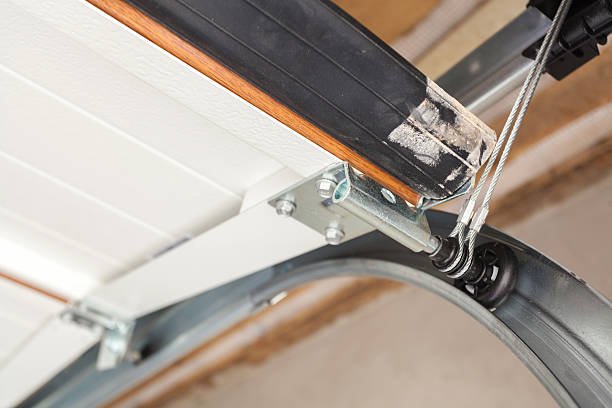Your garage door is among the biggest and most frequently operated moving parts of your home. It provides safety, convenience, and protection for your vehicles and belongings. But what happens when its cables wear out or break? This guide will walk you through everything you need to know about Garage Door Cable Replacement, including signs of wear, why cables fail, how replacement works, and when to call a professional.
What Are Garage Door Cables?
Garage door cables are strong metal wires designed to lift and lower your garage door safely. They work alongside the springs to balance the weight of the door. These cables are crucial for smooth, safe operation, and any failure can cause the door to become unbalanced or even crash down unexpectedly.
Types of Garage Door Cables
- Lift cables – Found on doors with torsion springs, wound around a drum.
- Safety cables – Installed with extension springs to prevent injuries if a spring snaps.
Why Do Garage Door Cables Fail?
Garage door cables are under constant tension and friction, leading to gradual wear. Common causes of cable failure include:
- Rust and corrosion: Moisture causes rust, weakening cables over time.
- Fraying: Regular use causes strands to fray, leading to eventual snapping.
- Poor maintenance: Lack of lubrication and inspection increases failure risk.
- Improper installation: If cables were not installed correctly, they may wear unevenly or break prematurely.
Regular garage door maintenance can extend the life of your cables and other components.
Signs Your Garage Door Cables Need Replacement
Spotting early warning signs can help you avoid accidents or unexpected breakdowns. Look for:
- Frayed or worn cable strands
- Loose cables hanging from drums or pulleys
- Door opening unevenly or getting stuck
- Jerky or noisy operation
- Visible rust on cables
If you notice any of these signs, garage door cable replacement should be scheduled immediately to avoid safety hazards.
Why Garage Door Cable Replacement Is Important
Broken or damaged cables can lead to:
- Complete door failure: A snapped cable may cause the door to slam shut.
- Injury risks: Faulty cables can cause doors to fall, injuring people or pets.
- Damage to property: Cars or storage items in the garage may get damaged.
- Additional repairs: Broken cables often strain other components, like springs or rollers, increasing repair costs.
Can You Replace Garage Door Cables Yourself?
While some homeowners consider DIY, garage door cable replacement can be dangerous due to the tension in the cables and springs. Improper handling may cause injury or further damage to your garage door system.
Risks of DIY Replacement
- Removing tension from the cables can cause the door or springs to snap into motion unexpectedly.
- Incorrect installation affects door balance and safety.
- Without proper tools or experience, the job can take hours or remain incomplete.
How Professionals Replace Garage Door Cables
Hiring a garage door service professional ensures safe and efficient replacement. Here is what the process typically involves:
- Inspection: The technician examines the cables, springs, drums, and pulleys for any signs of damage.
- Securing the door: The door is secured in place to prevent sudden movements.
- Removing old cables: Worn or broken cables are safely unwound and removed.
- Installing new cables: Technicians install and attach new cables to drums or pulleys, ensuring correct tension and alignment.
- Testing door balance: The door is manually lifted and lowered to test smoothness and balance.
- Final adjustments and lubrication: Cables, springs, and other moving parts are lubricated for optimal performance.
How Often Should You Replace Garage Door Cables?
Garage door cables generally last 5-10 years, depending on usage frequency and maintenance. Using your garage door several times a day will cause the cables to wear out more quickly. Routine inspections every 6 months can catch early fraying or rust before replacement becomes urgent.
How to Maintain Garage Door Cables
To extend the life of your cables:
Inspect regularly for rust, fraying, or slackness
Lubricate cables and moving parts with silicone-based spray
Avoid moisture exposure by keeping garage interiors dry
Schedule professional maintenance annually for thorough inspection and tune-ups
When to Replace Garage Door Cables Alongside Springs
Often, garage door cables and springs wear out around the same time. If you are replacing your cables, it may be cost-effective to check the condition of your garage door springs as well. Damaged springs can place additional stress on new cables, leading to early failure.
Choosing a Professional for Garage Door Cable Replacement
When hiring a garage door service professional, look for:
- Licensed and insured companies
- Positive reviews and local reputation
- Transparent pricing with no hidden fees
- Experience in your specific garage door type (torsion or extension spring systems)
Final Thoughts
Garage Door Cable Replacement is a crucial part of maintaining your garage door’s safety and functionality. Ignoring worn or frayed cables can lead to dangerous situations, property damage, and higher repair costs down the line. Regular inspections, proper maintenance, and timely professional replacements will keep your door operating smoothly for years to come.
If you suspect your garage door cables are worn out, contact Sunrise Garage Doors LLC today for a professional assessment and expert garage door cable replacement service you can trust.
